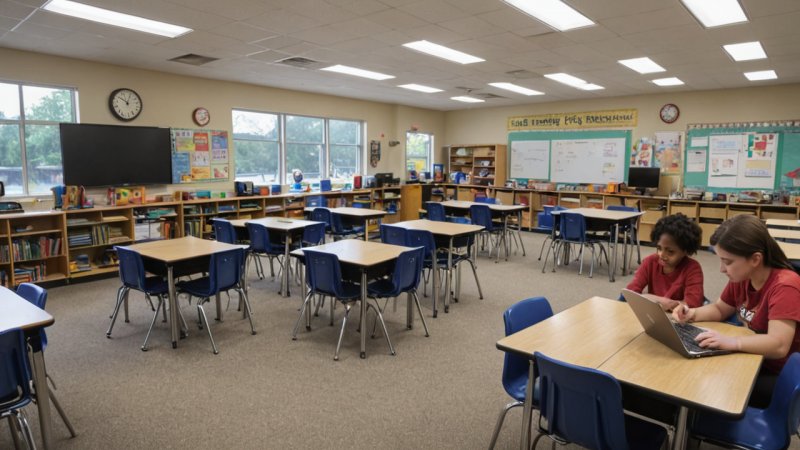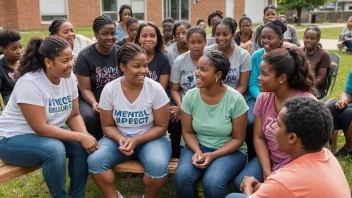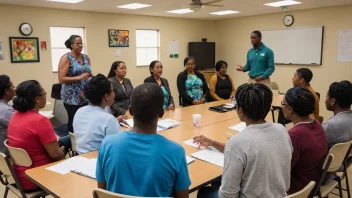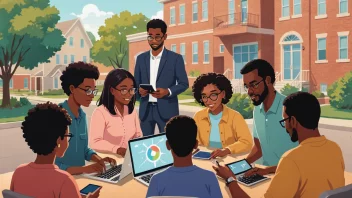As we step into 2024, the landscape of education and literacy continues to evolve, driven by technological advancements, societal shifts, and a growing understanding of diverse learning needs. This year promises to be pivotal in shaping how knowledge is imparted, received, and valued across the globe. With increasing emphasis on inclusivity and accessibility, the trends emerging are not only innovative but also deeply aligned with the principles of social justice and community empowerment. In this article, we will explore the key trends in education and literacy that are expected to dominate 2024, offering insights into how they can foster a more equitable and informed society.
1. Personalized Learning Experiences
One of the most significant trends in education for 2024 is the shift towards personalized learning experiences. This approach tailors educational content to meet the individual needs, skills, and interests of each student. Technologies such as artificial intelligence (AI) and machine learning are playing a crucial role in this transformation, allowing for adaptive learning platforms that respond to a student's performance in real time. Educators are increasingly utilizing these tools to create customized lesson plans, enabling students to progress at their own pace and engage more deeply with the material.
2. Focus on Social-Emotional Learning (SEL)
As mental health and emotional wellbeing take center stage, social-emotional learning (SEL) is becoming a critical component of educational curricula. In 2024, schools are expected to prioritize SEL alongside traditional academic subjects, recognizing that emotional intelligence is essential for personal and academic success. Programs that promote self-awareness, empathy, and relationship-building are being integrated into classrooms, helping students develop the skills necessary to navigate their social environments effectively.
3. Integration of Technology in Literacy Programs
The integration of technology into literacy programs is another trend that is gaining traction in 2024. Digital tools, such as e-books, interactive apps, and online resources, are being used to enhance reading and writing skills, making literacy more engaging and accessible. Moreover, gamification—where educational content is delivered through game-like experiences—is proving to be an effective way to motivate students and improve literacy outcomes, particularly among reluctant readers.
4. Emphasis on Global Citizenship Education
With the world becoming increasingly interconnected, the concept of global citizenship education is on the rise. In 2024, educators are expected to emphasize the importance of understanding and addressing global issues, such as climate change, inequality, and human rights. Curriculum designs will seek to foster a sense of responsibility among students to engage with these challenges actively. This trend not only enhances literacy skills but also prepares students to think critically about their role in a diverse and complex world.
5. Community-Based Learning Initiatives
Community-based learning initiatives are gaining popularity as a means to bridge the gap between education and real-world application. In 2024, educational institutions will increasingly partner with local organizations, businesses, and community groups to provide students with hands-on learning opportunities. This approach not only enriches the educational experience but also encourages students to contribute to their communities, fostering a spirit of service and social responsibility.
6. Increased Accessibility and Inclusivity
The push for increased accessibility and inclusivity in education is a trend that will continue to grow in 2024. Schools and educational programs are striving to ensure that all students, regardless of their backgrounds or abilities, have equal access to quality education. This includes implementing universal design principles in curriculum development, providing resources for students with disabilities, and creating safe spaces for marginalized communities. By focusing on inclusivity, educators can help dismantle barriers to learning and foster a more equitable educational environment.
7. Lifelong Learning and Upskilling
The concept of lifelong learning is becoming increasingly relevant in today’s fast-paced world. In 2024, there will be a greater emphasis on upskilling and reskilling opportunities for individuals of all ages. Educational institutions and organizations will focus on providing accessible resources and courses that cater to the evolving needs of the workforce. This trend not only enhances literacy and educational attainment but also empowers individuals to adapt to changes in the job market and embrace continuous personal development.
8. Environmental Education and Sustainability
As awareness of climate change and environmental issues grows, education around sustainability is becoming a critical focus. In 2024, schools are expected to incorporate environmental education into their curricula, promoting awareness and action around ecological conservation. By teaching students about sustainability practices and the importance of protecting the planet, educators are equipping the next generation with the knowledge and skills needed to address pressing environmental challenges.
Conclusion
As we look ahead to 2024, it is clear that education and literacy are undergoing transformative changes that reflect the needs and values of today’s society. From personalized learning and social-emotional education to community engagement and sustainability, these trends hold the potential to create a more inclusive and informed global community. By staying informed about these developments, individuals can find meaningful ways to engage with and contribute to the field of education, fostering a culture of lifelong learning and social responsibility. The future of education is bright, and with collective effort and commitment, we can ensure that every learner has the opportunity to thrive.






